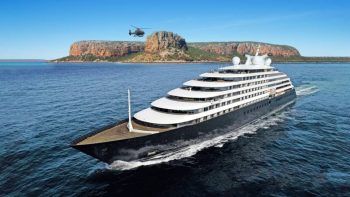
There have been big changes in the Canadian aviation industry, and even the Australian business community is taking note. Lori Ranson, Senior Analyst, Americas at the Sydney-based CAPA - Centre for Aviation, penned a story this week that looks at how Canadian airlines are reacting to the extinction of Lynx Air.
Here’s an excerpt of her column, along with a link to the full story on the CAPA site. (Note that no mention of Canada Jetlines is made.)
The demise of Lynx Air was hardly a shock to those familiar with the country's aviation history, which is rich with low-cost airline failures.
But the airline's exit could create opportunities for Canada's other airlines - if they behave in a rational manner.
Canada's three largest operators - Air Canada, WestJet and Porter Airlines - have co-existed for quite some time and know the market well. And each airline has a somewhat distinct strategy going forward that has promise in the market.
What's now left in Canada are the incumbents - WestJet and Air Canada - each with their own respective strategies, as well as Porter and Air Transat, which are forming a joint venture, and the ultra-low cost operator Flair Airlines.
- Air Canada's capacity growth for 2024 will remain below pre-crisis levels.
- WestJet is still in the midst of its strategy to concentrate on its strength in Western Canada and play to its low cost roots.
- Air Transat and Porter are forming a JV to build a combined competitive network that, at the 10-year deal's full potential, will result in Porter's connecting flights accounting for 15%-18% of Air Transat's passenger traffic.
CAPA - Centre for Aviation's Fleet Database shows that projected aircraft deliveries for Canada should not experience a meaningful increase until 2026 when airlines will accept delivery of 69 aircraft, some of which will obviously be pegged as replacement aircraft for older jets.
For the moment, the probability that a new operator attempting to fill the void left by Lynx is low. Even with backing from the ULCC investment specialist Indigo Partners, Lynx couldn't make the model work.
But that's not to say whether another entity will emerge in the market at some point in time. Lessons learned in the aviation industry can sometime fade fast, and the idea of a market with few ultra-low cost competitors may become attractive again down the road.
Now that Lynx has ceased operations, Canada's other ultra-low cost airline is embracing its new stature as the only ULCC in the country. Flair will garner a certain level of attention during the short term as market watchers determine whether Canada can sustain a single ULCC.





